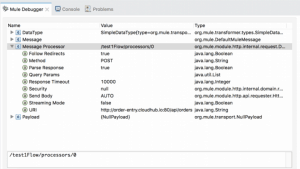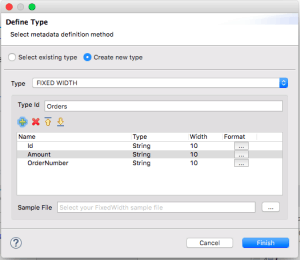As part of our upcoming Anypoint Platform June 2016 announcement, we are excited to release Mule 3.8. This release extends the flexibility of Mule, the runtime engine of Anypoint Platform, by unifying integration and API management capabilities into one lightweight distribution. It also significantly enhances core Mule functionality including DNS round robin load balancing, DataWeave Flat File, Fixed Width and COBOL Copybook support, Mule HA improvements, and more.
Unified API Gateway and Mule runtimes
When we first started our building our API solution, we created an extension of our core Mule runtime specifically for API gateways. With APIs becoming more central to everything our customers do, we’ve now unified the API Gateway extensions with the core Mule runtime, simplifying development and operations. Please see the migration guide for information on how to migrate.
Early Access support for RAML 1.0
This release includes Early Access support for RAML 1.0 in APIkit. RAML 1.0 offers a number of powerful new capabilities that enable broader reuse of design assets with data types, more concise and consistent design with annotations and libraries, and improved security schemes. You’ll also see early access support for RAML 1.0 in API Designer and API Notebook. As the RAML 1.0 spec was recently made GA, we’ll be hardening these capabilities over the coming Mule 3.8.x releases.
Improved Error Handling and Debugging
Enhancements to the way Mule 3.8 displays error messages allow you to clearly see where an error is coming from, the payload at that point in time, the configuration for that element, and click to navigate to that point in the flow, speeding time to resolution.
Mule 3.8 also shows more detailed data in Studio’s debugger for HTTP and Database, making it easier and faster to debug issues when they occur. Over time we’ll be adding support for more connectors.
HTTP Requester DNS load balancing
The HTTP connector now supports simple DNS round robin load balancing when connecting to an API, improving load distribution and resiliency. The connector will now resolve all IP addresses for a given DNS record. The connector will then distribute all it’s connections across the IPs. If a connection error occurs for one IP, the next one is tried transparently.
DataWeave Fixed Width, Flat File and COBOL Copybook
DataWeave now supports new file formats for reading and writing fixed-width and other flat files. The structure of these files can be easily defined using a new Flat File Definition file format. You can also import COBOL Copybook files into this schema format using Studio (Early Access). Finally, you can now use the migration tool to convert DataMapper transformations to DataWeave transformations.
Mule HA Quorums and Persistent Storage
Mule HA includes a number of new improvements. First, it contains a new quorum feature, which allows you to specify the minimum number of Mule instances to function. This allows you to more effectively deal with network splits in a cloud environment, such as AWS and Azure. Mule HA also includes a persistence option for storing ObjectStore data in a database. This improves resilience and allows you to create backups for recovery situations. Finally, it is now possible to monitor cluster members via JMX.
Other improvements
This release also contains these additional upgrades:
- TLS context can be shared in a domain.
- The TLS cipher suite and protocol configuration is allowed at a connector level.
- TLS 1.0 is now disabled by default.
- There is a new “insecure” mode for local testing that doesn’t perform certificate validation.
- The tls-default configuration is now used for the communication with API Manager.
- Improved granularity and ordering for ordered policies
- Client ID enforcement policy with Basic Authentication
- Support for persisting throttling and rate limiting quotas
- Auto-propagation of X-Fowarded-For headers
- Support for non-blocking to JMS outbound request response endpoint
- Additional tuning parameters for batch processing
- The BatchJobInstance ID and Batch block size are now configurable
- Users can now specify custom log4j2 config locations
- Domains now support loader overrides and redeployment control
- Timezone can now be specified in the <poll> scheduler and Quartz connector
- Support for specifying query timeout for database connector operations
- SFTP now validates againsts the known_hosts files
- Improved DataMapper documentation, quickstart guide, and examples
- Enhanced security on startup
- The runtime now contains a script to generate API Gateway domain
Get Started
- Download the new release of Anypoint Studio »
- Download Mule 3.8.0 »
- Read the release notes for Anypoint Studio and the 3.8.0 runtime.
- Read the documentation for the release
We look forward to your feedback in this post’s comments and in our forum. Happy connecting!












